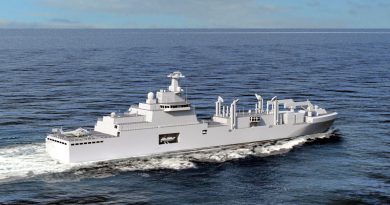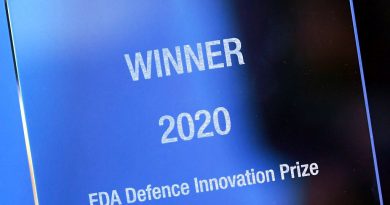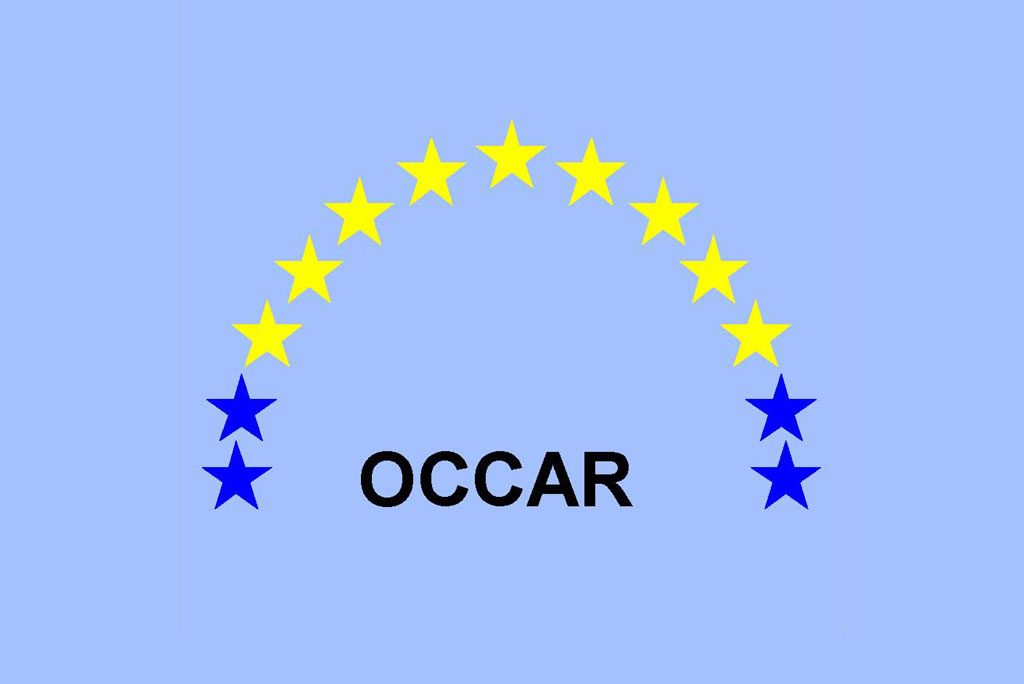
OCCAR: the Director’s view
Here Luca Peruzzi asks Adm. Matteo Bisceglia about his views on today and tomorrow of OCCAR.
The OCCAR has been operating for over 20 years. You have been involved in the organization in the past, with the European Multi-Mission Frigates (FREMM) programme, and have been the director for about eight months. Which is your assessment of the OCCAR tasks and status, and how do you see its future?
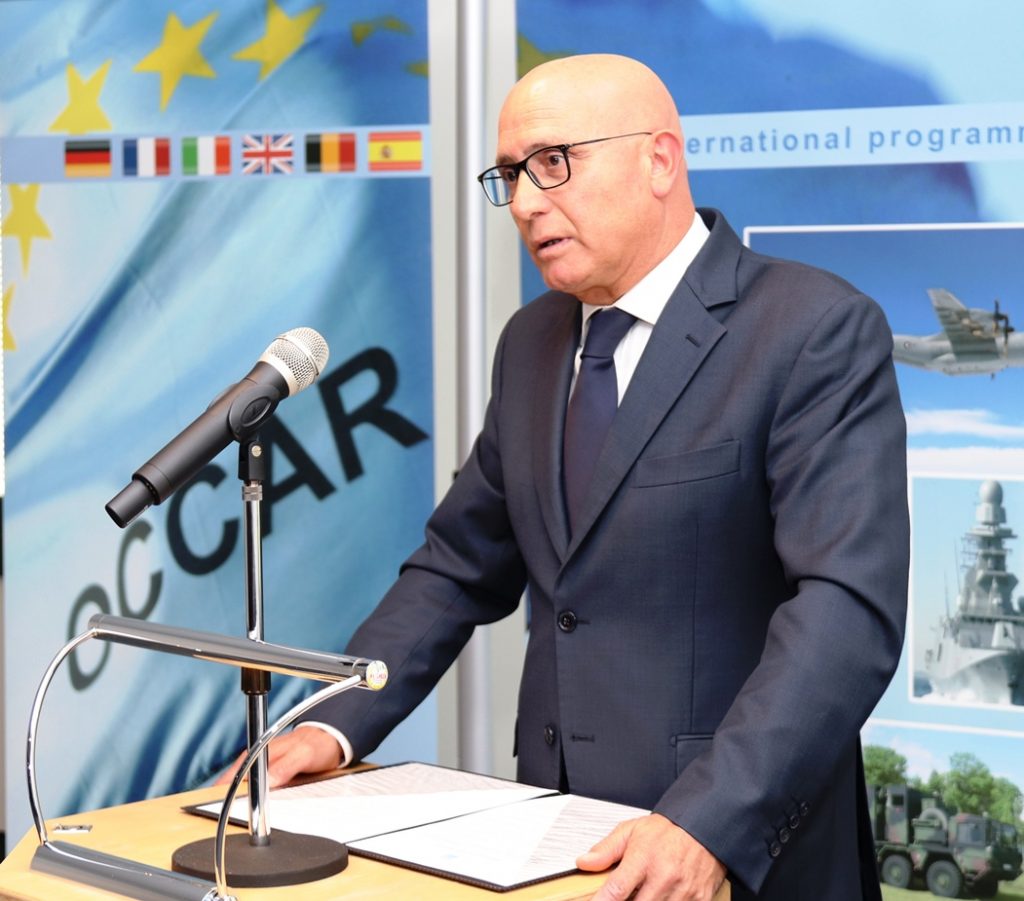
My former role as FREMM Programme Manager, and my continued involvement in the organization first as National representative in the Italian Naval programmes and then as Future Tasks and Policy Committee (FTPC) member, enabled me to hit the ground running. However, these have been challenging months, also due to this terrible coronavirus pandemic that, as you can understand, complicates everything. However I trust that once we will leave it behind us we will surely be stronger. Having said that, I would like to point out that the OCCAR I inherited is a high performing and effective organization, very lean and with a very low overhead cost.
If you read the OCCAR’s Convention you realise that not only the founders gave it a European vocation, but they were even pushing towards a European Security identity. OCCAR was given the tasks to manage the programmes that were assigned to it, and so far complex big programmes have been the core of its business. To do so, the Convention tells us, in its article 5, that we are to use the Global Balance, which means renouncing, in their cooperation, the analytical calculation of industrial juste retour on a programme-by-programme basis, replacing it by the pursuit of an overall multi-programme/multi-year balance. This can be challenging at times, because all nations have to justify to their taxpayers that their investments have a positive impact on their economies, that there is a return for the capital. However, juste retour has been identified as a major obstacle to cooperation, as it brings duplication of efforts and inefficiencies, and therefore endangers the competitiveness of the European Defence industry and, in the long term, of our strategic autonomy.
As for the future of the organization, before the pandemic I was very optimistic and expected the integration of new collaborative programmes in OCCAR. I don’t want to be pessimistic now, but the forecast for the Euro economy this year is not very promising, with an important recession that will not doubt influence the budgets allocated to defense. I just hope that these are not as severe as with the 2008 economic crisis, and that the European incentives are sufficiently interesting to really trigger the launch of cooperative programmes.
In any case, and following the integration, or potential integration, of new small programmes, OCCAR has already started to revise its structure to optimize its resources. I have discussed with my Board of Supervisors the need for a small programmes’ Programme Division, where resources can be shared, so that several programmes have for instance the same commercial or financial officer, since there is no need for a full-time element for each programme. The final task is to maintain the OCCAR overhead cost, that means administrative versus operational budgets, as low as possible. But this is work in progress.
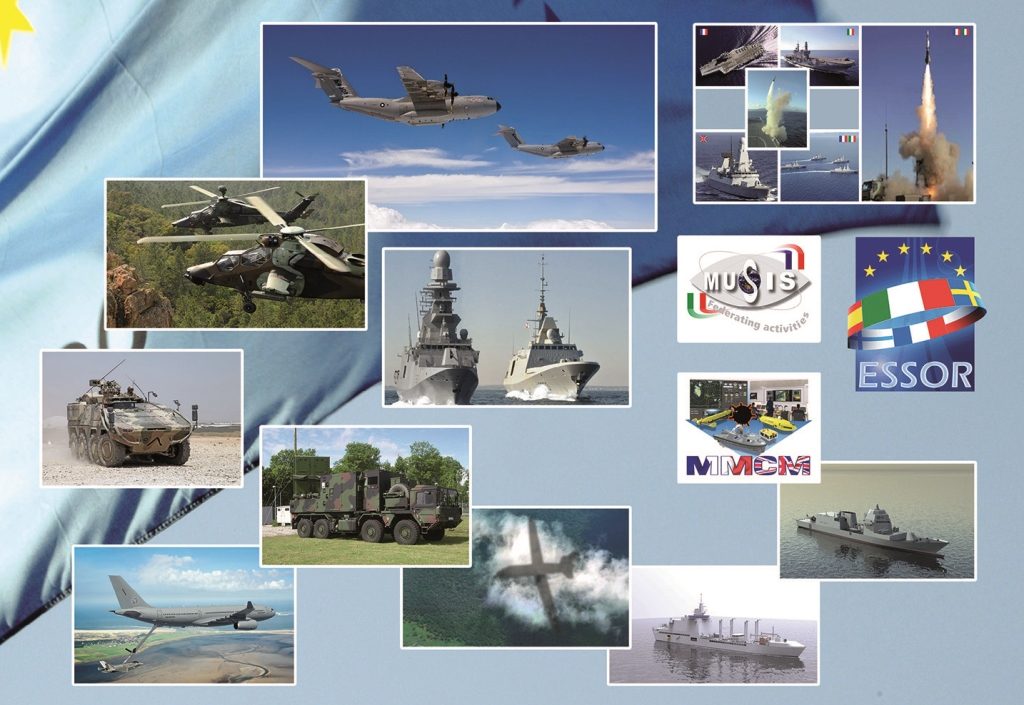
How OCCAR is working with the European Defence Agency (EDA) and how the PErmanent Structured COoperation (PESCO) establishment is influencing OCCAR’s future?
We expect that the European Initiatives will reinvigorate armaments cooperation and new programmes will emerge to close the capability gaps identified by nations, through the EDA-OCCAR Administrative Arrangement. The later was successfully signed in 2012, defining the roles and involvement of both organisations, and outlines how to transfer a programme from EDA to OCCAR. The European Secure Software-defined Radio (ESSOR), Multinational Multi-role tanker transport aircraft Fleet (MMF), Maritime Mine-Counter Measures (MMCM) and Multinational Space-based Imaging System (MUSIS) programmes are examples of this fruitful cooperation and were born within the EDA. After the EDA institution in 2004, the European Council later tasked it to search for greater synergies with OCCAR, in light of our roles in the promotion and development of cooperative programmes. However, in the past, the economic crisis pushed toward programmes which were developed nationally.
As part of the ambitious and more binding common commitments undertaken by the 25 Member States that participate in the PESCO, the same nations agreed to consider the OCCAR as the preferred managing organization. With the third batch of 13 additional projects adopted by the Council on 12 November 2019, there are currently managing 47 PESCO projects, each with a different level of maturity. There is a certain expectation that some of the projects that have been launched in the PESCO framework will be at some point entrusted to OCCAR. However, a number had already been launched before becoming PESCO, others require the European Defence Industrial Development Programme (EDIDP) funding to move forward, and many of them will require the launch of a procurement process. This is where OCCAR can play a significant role. For instance, Spain is leading the Responsive Electronic Attack for Cooperation Tasks (REACT), also known as Airborne Electronic Attack, and has formally asked OCCAR to explore options to manage it on behalf of the PESCO Participating States. The European Patrol Corvette is another programme that would fit perfectly in OCCAR.
As OCCAR is conceived to manage fundamentally large complex armaments programmes, should a large number of PESCO small projects be entrusted to OCCAR, this might require a review of the OCCAR structure. However, for the time being we are not there yet, but as I already mentioned, I have discussed with my Board of Supervisors the need for a small programmes’ Programme Division.
I would also like to mention that our relationship with European Union is excellent. We are working on a Contribution Agreement per direct award programme, one for ESSOR and one for the MALE RPAS – Medium Altitude Long Endurance Remotely Piloted Aircraft System, whereby the European Commission will delegate certain implementation tasks of the EDIDP to OCCAR. It is a big step, because it means collaboration whilst we are not a EU Agency. Nevertheless, I have referred earlier to the European vocation of OCCAR, and I’d like to highlight that even though we are not bound by the European regulations, we follow their spirit, therefore these collaborations do not bring complicated obligations beyond the OCCAR rules.
Which are the costs for programmes’ management through OCCAR?
OCCAR has a very low overhead cost, in 2020, if you compare the total administrative budget (cost of premises, IT equipment, salaries of the staff) with the total operation budget (funds actually used to pay for the programmes’ outputs, be it aircraft, vessels, armoured vehicles…), it amounts to 1.3%, which is very low if you compare with similar organisations’ figures. We have a very lean structure, and that is why, to keep it this way and allow for small programmes management, I started working on this small programmes’ Programme Division.
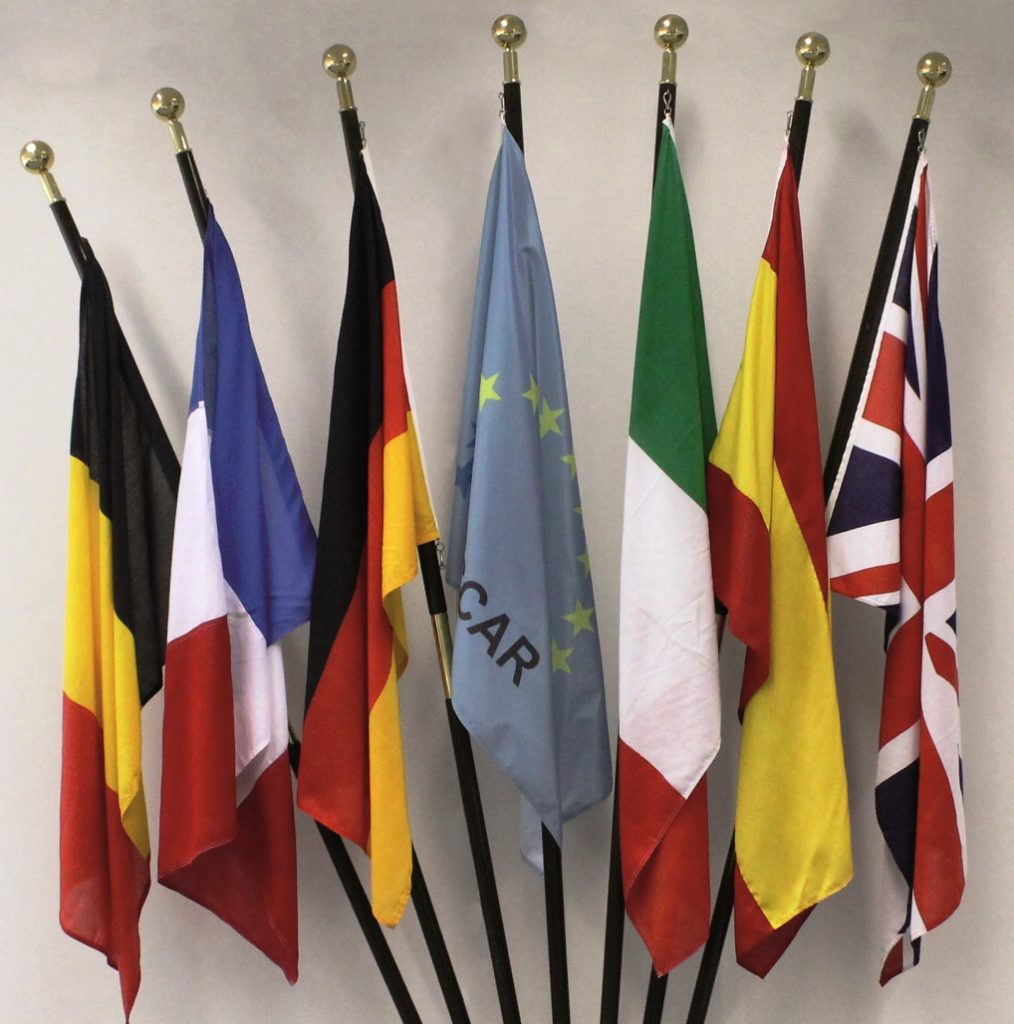
Which effects will BREXIT have on the OCCAR’s work?
Even if the UK is one of the four OCCAR founding Nations, the fact that the same nation has left the European Union has no effect on the organization’s construct. However, we can foresee delays in future deliveries of parts for the programmes where UK manufacturers are involved, depending also on the arrangements reached on custom duties. What is more, OCCAR is proactively working on an agreement among Member States to manage EU programmes/projects in an efficient and effective way.
Which are the relationships between OCCAR and the NSPA?
We have a great relationship with the NATO Support and Procurement Agency (NSPA). A Memorandum of Understanding was signed in 2005, followed by a Cooperation Agreement in 2014 delegating OCCAR for the acquisition of the MMF programme, the latter having been updated in 2019, together with the deliveries schedule. We could say this is a joint programme, with a terrific inter-agency cooperation that includes EDA, where the first steps for a pooling and sharing arrangement took place. For the time being the cooperation has been fantastic, each one in its specific area of expertise.
The NSPA is in fact outstandingly performing in the “support field” to several Programmes managed by OCCAR, as Boxer, COBRA and A400M, exploiting the experience derived from the previous NAMSA which core business was Logistic Support. However, since 2015 the “P” in NSPA is meant for “procurement”, and one wonders if that doesn’t imply duplication, as OCCAR Member States are all NATO allies. It is in the end a customer sovereign decision where to bring a programme for its management.
Can the different countries’ export policies affect cooperation?
It is very difficult to achieve economies of scales based only on national demand, and given the wide variety of systems employed by the different EU Member States OCCAR, export may become the only way to lower the unit price and maintain production lines. So absolutely, I think the countries’ export policies are a strong argument to be evaluated when considering potential partners in a defence project.
Photos courtesy OCCAR

